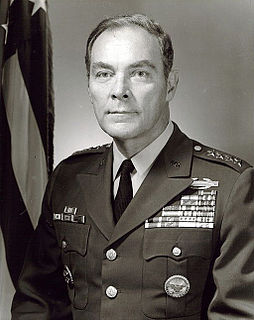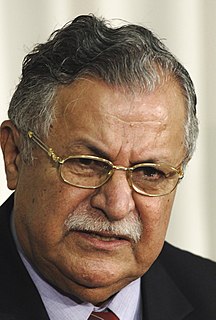A Quote by Alexander Haig
Syria is a terrorist state by any definition and is so classified by the State Department. I happen to think Iran is too. Iraq, Iran, Syria, they're all involved.
Quote Topics
Related Quotes
If you want peace and well-being to be in place in the Middle East and you want terrorism to be uprooted, then there's no path other than the presence of the Islamic Republic of Iran, you saw that in Iraq, Syria, Lebanon and Yemen that the power that was able to help the people of Iraq, Syria, Lebanon and Yemen in the face of terrorist groups was the Islamic Republic of Iran.
Turkey's relations with its immediate neighbors are improving. They were pretty bad for a long time - with Syria they were abominable, and with Iran they were pretty bad. In both cases Turkey sees potential for trade, especially with Iran, where it gets a lot of natural gas. In good times Iran and Turkey find mutually profitable objects of exchange, but with Syria things have been very bad; Syria doesn't have much money and never will.
I think most of the Washington foreign policy establishment exists in a fantasy world when it comes to Syria. They fundamentally don't understand that Russia and Iran, from the beginning, had much more at stake in Syria than the United States did. Russia and Iran were going to do everything possible in order to keep Bashar al-Assad in power.
The idea that Hezbollah is acting as an agent of Iran is very dubious. It's not accepted by specialists on Iran or specialists on Hezbollah. But it's the party line. Or sometimes you can put in Syria, i.e. "Syrian-supported Hezbollah," but since Syria is of less interest now you have to emphasize Iranian support.
I think we have to knock out ISIS. Right now Syria is fighting ISIS. We have people who want to fight both at the same time. But Syria is no longer Syria; Syria is Russia and Iran, who she made strong, and Kerry and Obama made into a very powerful nation and very rich nation very, very quickly. Very, very quickly. I believe we have to get ISIS.




































